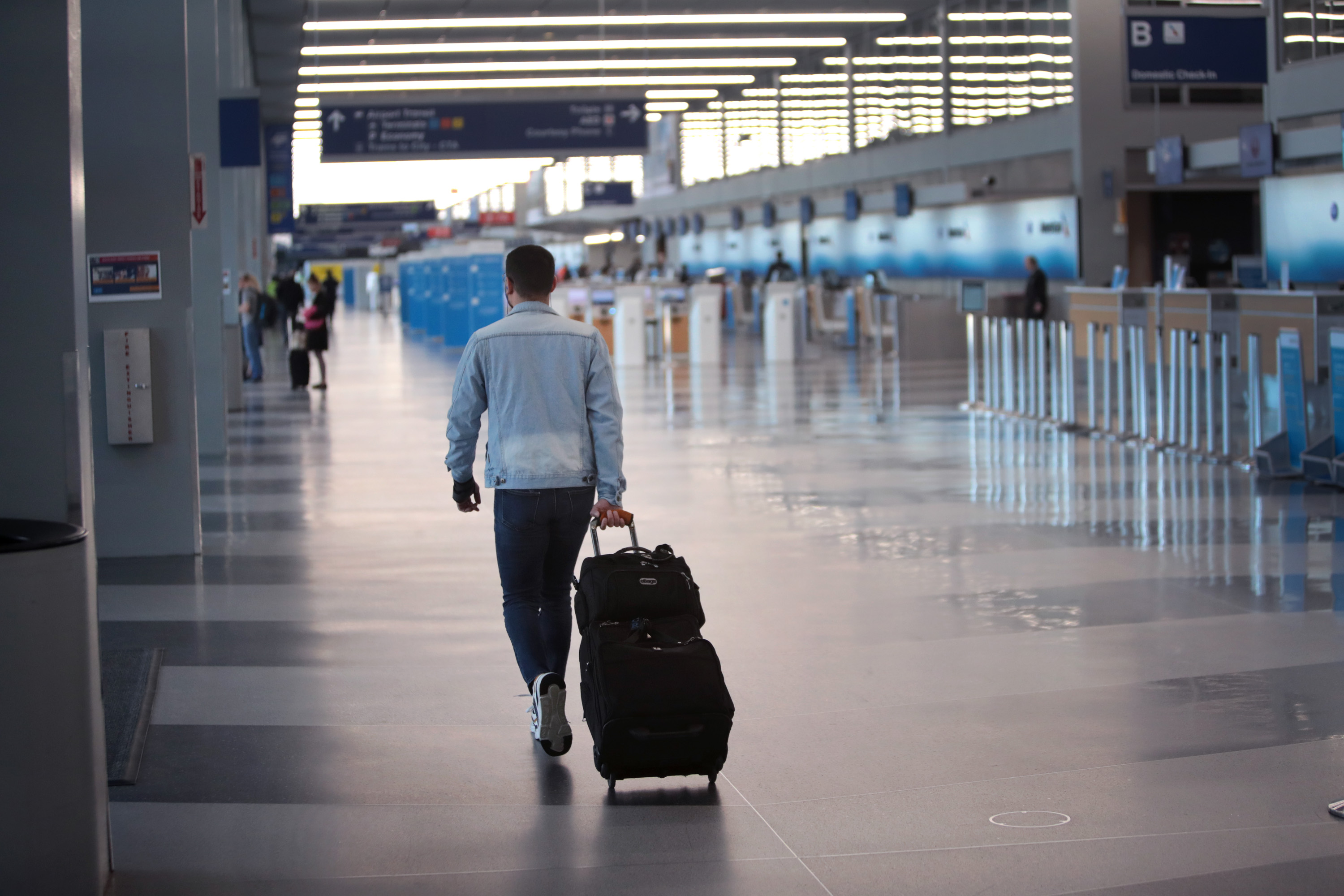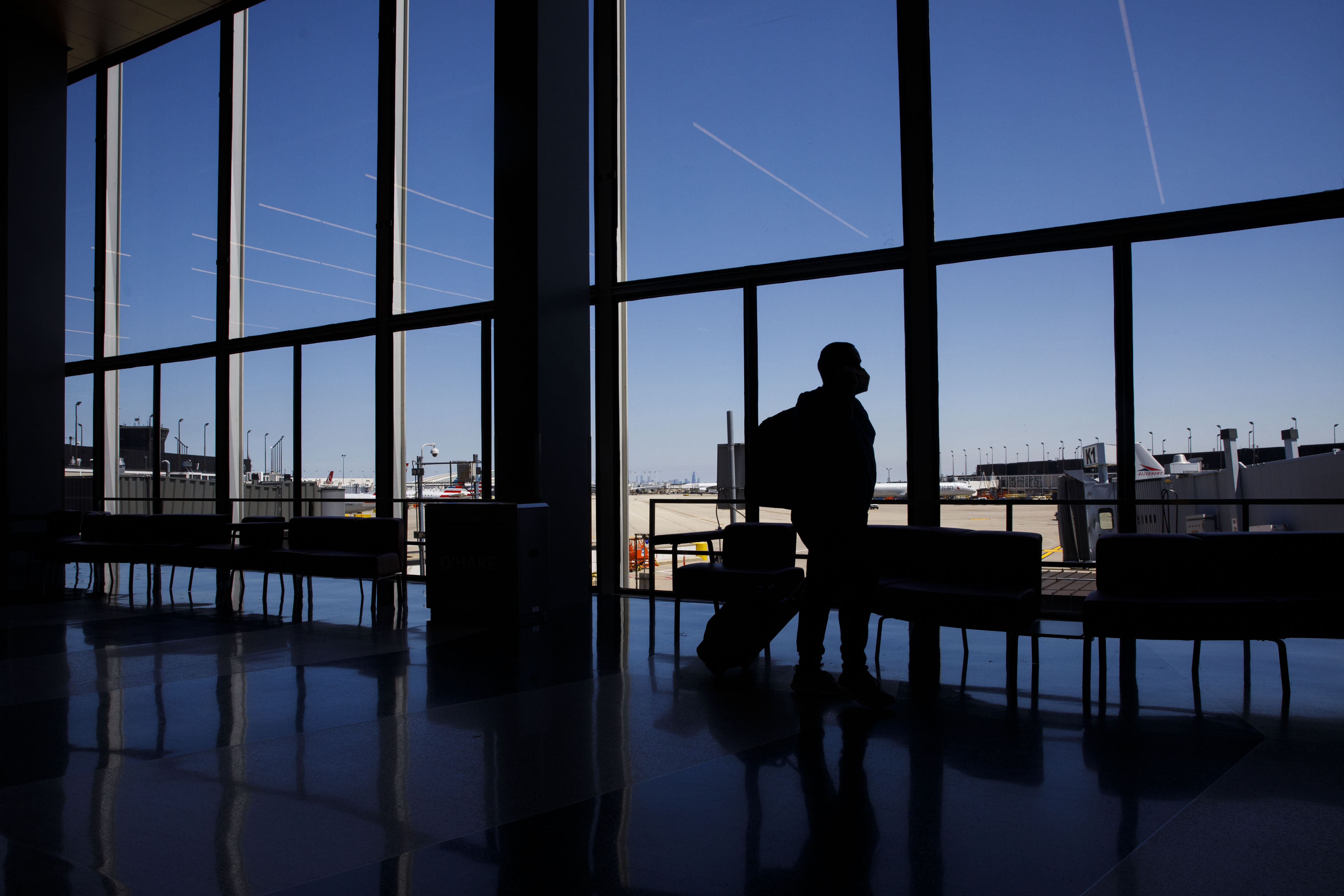The city of Chicago on Tuesday is set to update its emergency travel order requiring a 14-day quarantine.
Wisconsin was one of several locations added to the order last week, along with Montana, Idaho, Minnesota and Puerto Rico. Kentucky and Louisiana were removed, leaving the total number of locations on the list at 19.
Chicago Department of Public Health Commissioner Dr. Allison Arwady had previously warned that Wisconsin had reached the point of inclusion.
Arwady said last week that Wisconsin was "currently in very poor control when it comes to COVID," adding that the state had more than double the 15 average daily cases per 100,000 residents that is the threshold to be named on Chicago's travel order.
That number has continued to climb, standing at 37 new cases for every 100,000 residents as of Monday, more than twice Chicago's threshold and nearly three times the maximum allowed by many states before a quarantine is required.
The state's positivity rate also continues to soar. On Friday it was an already-high of 16.5%, and as of Monday, the rate was 18.2%.
Throughout September, Wisconsin has seen a soaring number of cases as well. This past Friday, Wisconsin reported its highest new-case record ever, with 2,504 cases.
Under the Chicago travel order guidelines, those traveling to or from Wisconsin for work and those traveling through the state for travel will not need to quarantine, Arwady said. Those traveling to the state for leisure, however, even for less than 24 hours, will need to quarantine, she said.
The previous week, Chicago's quarantine list dropped to 16 states when Florida, Idaho, North Carolina, Texas, Hawaii and Nevada were all removed and Utah added.
States are added to the list if they have "a case rate greater than 15 new COVID-19 cases per 100,000 resident population, per day, over a 7-day rolling average." If they fall below that threshold, they could be removed as well.
Chicago's travel order, which began on July 6, is evaluated every Tuesday, with any additions taking effect the following Friday.
The states currently included are: Alabama, Arkansas, Georgia, Idaho, Iowa, Kansas, Minnesota, Mississippi, Missouri, Montana, Nebraska, North Dakota, Oklahoma, South Carolina, South Dakota, Tennessee, Utah and Wisconsin. Puerto Rico is also on the list.
Arwady said travelers entering or returning to Chicago from "states experiencing a surge in new COVID-19 cases" will need to quarantine "for a 14-day period from the time of last contact within the identified state." Essential workers could be exempt from the quarantine requirement, however, as long as their employer certifies their work in writing.
The order is set to remain in effect until further notice.
New York and New Jersey are also asking visitors from several states, including Illinois, to quarantine themselves for two weeks.
Still, outside of Chicago, Illinois Gov. J.B. Pritzker said the state likely won't require residents who travel to and from neighboring states to quarantine for two weeks solely because of that travel.
But Illinois' Department of Public Health did release a "travel map" indicating which states are a "higher risk" for travelers.
The state's map uses the same criteria as Chicago's travel order for determining the states that are deemed to be an increased risk.
“Travel may increase the chance of becoming infected and spreading COVID-19,” IDPH Director Dr. Ngozi Ezike said in a statement. “To help inform residents where they might be at greater risk of being exposed to COVID-19 when they travel, IDPH has launched a map that clearly shows states and other countries where case rates are elevated. While staying home is the best way to protect yourself and others from COVID-19, we know that it may not be possible to avoid all travel. We encourage people who are traveling, whether for work or otherwise, to check out the map before making plans.”



